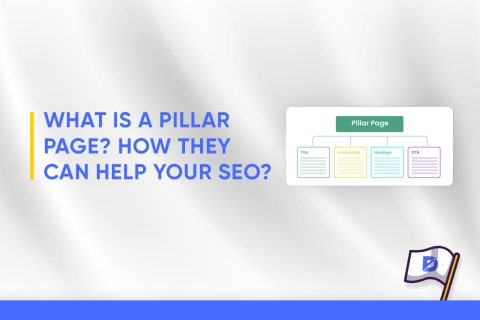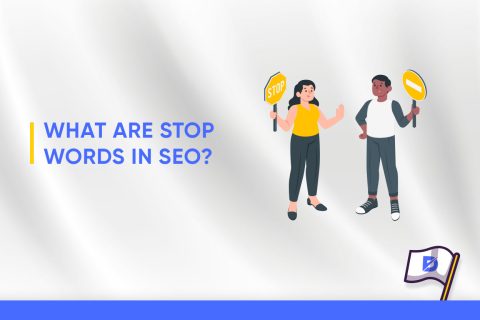Throughout digital marketing, SEO and SEM are usually operated by two separate teams – or at least two specific experts. Although intended to operate in parallel, these two fields sometimes neglect to understand that SEO impacts SEM and vice versa. All teams exist in their vacuums, and the silos rarely exchange results. However, Google Advertising can offer useful knowledge to SEO experts, even as SEM specialists can exploit SEO to develop advertisement and keyword strategies. So, how can you continue using Advertising data to boost your organic search? It all starts with pulling the Ads info. Let’s see how to improve SEO with Google Ads.
You can get organic results thanks to your PPC when you use the data below. If you check the results regularly, it will help your SEO strategies.
Search Terms Report
Most SEO experts have never seen the Google Ads framework (or have struggled with its new, confusing configuration – my humble opinion) because they don’t know where to start pulling info. Maybe the best area to continue with is the Search Terms article.
The Search Terms summary can be contained in the Keywords portion of the growing campaign. This article includes the exact search words used by someone when your ad was activated. This article is particularly useful because it discusses the “real” words used. Although certain of these would appear meaningless – which mostly implies they had to be applied to derogatory keyword lists to avoid advertising being shown – some are fascinating variations to the current keywords.

Though you don’t want to add any of these to it, some stand out. Suppose you see the words being used when you get better views and results; brand managers can also improve their strategies using them. And, generally, that’s when everything comes to a close.
And yet SEO experts could also review these search terms reports and see if they can be used for keyword strings or even for brand new keywords. Because you realize that these are the search queries users use, they may also be really useful with organic searches.
If you talk of SEO, this is close to the search question results you see in the Web Console. Although we always pull keywords from here, while Google Advertising promotions are ongoing, you can always discuss incorporating search phrases into the mix.
Audience Insights
Although the Search Terms report provides you with what search queries people use to make your ad show, the Viewer Insights report provides you with more knowledge about your viewer. Accessed in the Community Manager, you will have a remarketing system to use this template – as you would do anyway – as well as a collection of audiences.
After the lists have been up for several weeks, you’ll be able to start collecting details on the visitor’s browsing background and what groups they fall under as far as the market goes.

In-market markets provided insights into customers who are more than willing to invest quite early. There’s an index number for any group. The higher the rating, the more likely this group is to suit the purchasing preferences of the individuals on the list. The organization performs carpet construction in this specific situation with a strong rating.
Affinity Audiences
Affinity Audiences are typically individuals who are not willing to shop. Typically they’re further up in the funnel. So, topics could be more related to someone who consumes content and does research than someone looking for an exact product. Those might sound very out of control for SEO, but you also have some insights into your target.
The key aim of this promotional list is to broaden targeting and improve bidding. However, SEO practitioners may use lists to identify new keywords. E.g., in In-Market analysis, we see that carpet installation is a key problem. And not only can you build content around this term, but you can also apply it to your website.
The Affinity Audiences might seem a bit out of hand; however, you can still benefit from it in terms of SEO. For example, you know that one of your top audiences is interested in automotive and real estate. You could create content around these topics. Let’s move straight to the construction company for the carpet. Because this company markets “natural” carpeting, the marketer might produce articles on the advantages of environmentally sustainable carpeting and related topics.
CTR Rate
CTR means click-through rates. You can understand how well your campaign is working. If you know all the details about what is PPC campaign, you can estimate that the success of the keywords you choose greatly affects the success of your campaigns. For this reason, the keywords you use in your campaign will also help your website’s SEO success.

Title Tags, Meta Description, and Keywords
You prepared title tags and meta descriptions if you advertised on Google Ads. You can learn the performance of these keywords on Google Ads. Let’s say you have an e-commerce website and prepare a product’s title tags and meta descriptions. If you get many clicks from a description, you can change your product description on your website. Thus, you need to check the data of clicks on keywords to get successful results on your webpage. If you need a guide for researching keywords, you can make a keyword research checklist for your campaigns and website content.
What Should You Do?
Now that you have the info, it’s time for some sort of exploration. You can begin by checking the best-performing search words and some feedback from the audience. Build content or link batches around such words or patterns, and track traffic, page loads, bounces, etc. Compare this to the current flow. As we mentioned, we both know how SEO operates. And give it time. Let this continue for maybe 8-plus weeks.
You can always use the data to come up with fresh concepts. Talk about the targets and discuss possible subjects that may concern them. Check for a couple of them to see what happens. New material can’t harm you, so it could help attract some of your target audience to the web.
Wrapping Up
Today’s post explained how to boost SEO with Google Advertising. As some say, Google has always confirmed that SEO is not pay-to-play: advertising through Google Ads does not boost organic search rankings. Not specifically, at least. Yet there are aspects that you can use Ads to further boost your SEO approach. E.g., you can easily use your PPC data to get insights that will contribute to an organic quest, saving you loads of time and resources in the process. Using Ads data to start a new SEO campaign is a perfect way to reduce the danger by building proof-of-concept and checking concepts. You may also mine your PPC data to improve your current SEO campaign or run advertisements to boost and strengthen your organic search performance!
Frequently Asked Questions About
If you check PPC’s results regularly on Google Ads, it can help a lot. You can get the data of CTR and target audience and learn which keywords are the best for your company. The traffic you get from PPC is not organic, but it is possible to turn it organic thanks to using data properly.
SEO targets the high-traffic keywords listed on your website. Ads also help you to adapt rapidly to a changing environment by approaching different keywords that travelers may be searching for. It can be very helpful for e-commerce firms. Google Ads advertisements are shown at the top of the organic lists.
Paid advertisements appear at the top of the website, above the SEO-influenced organic lists. The second is that traffic from organic through SEO is free, whereas traffic from PPC is free with each button. In certain instances, SEO and PPC function well when they are combined and strategically matched.
Organic search engine users can have increased ROI on conventional paid advertising sources, boosting PPC. Price. Price. Although SEO is neither cheap nor free, it will usually be more cost-effective than any other marketing campaign to deliver brand recognition and traffic to your website.
Search Terms Report, target audience, and CTR are the most valuable data for improving SEO.





No comments to show.